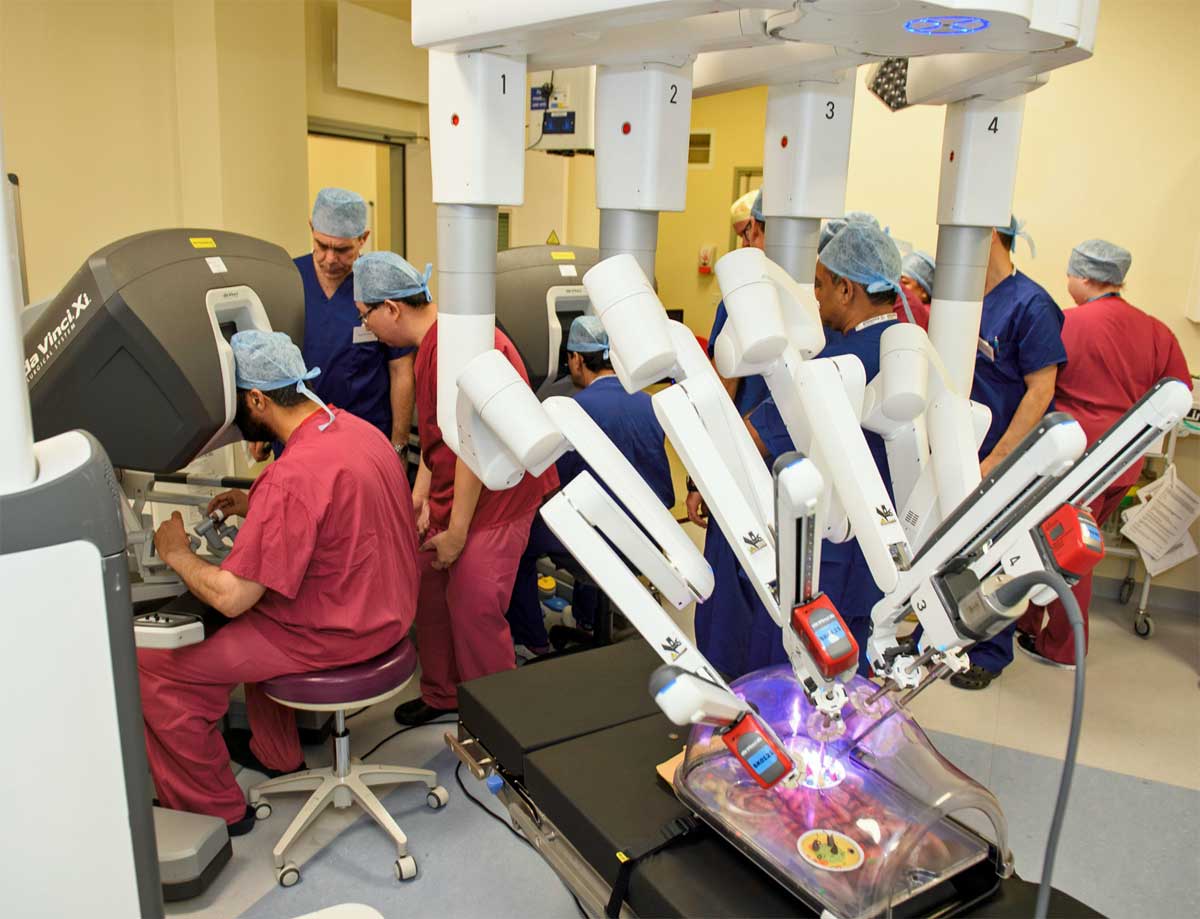Progress does not stand still, new technologies and advances in cancer treatment are revolutionising the way we treat the disease, from earlier cancer detection to improved quality of life for all cancer patients.
It is vital, through the delivery of our research and education programmes, that we continue to raise the standards of surgical treatment and clinical outcomes for patients with bowel cancer not just on a local level but throughout the country and internationally.

Robotics and Artificial Intelligence (AI) are part of the way forward for cancer surgery and Pelican is focused on ensuring that the latest technology is tailored to current best practice in the treatment of colorectal cancer to improve patient outcomes. Our clinical experts are currently assessing and educating their colleagues on the pros and cons of robotics versus the traditional methods of surgical practice using Laparoscopic, Trans Anal or Open Surgery.
Also, in the pipeline is the use of AI for personalized 3D imaging which can be worked on virtually by the surgeon prior to the actual operation to ensure the ultimate surgical precision and elimination of error.
